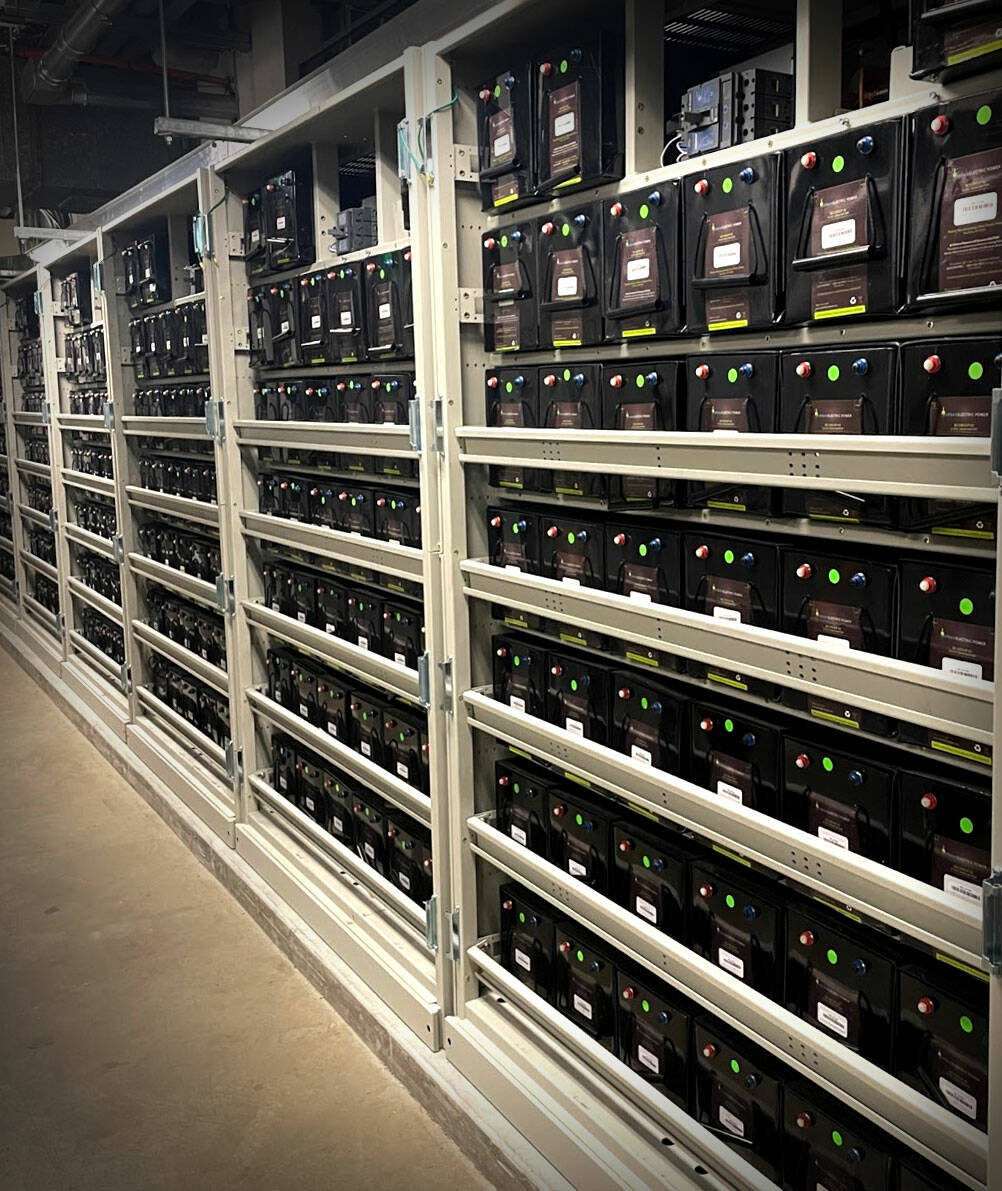Supercomputer Lab Swaps Lead-acid UPS Batteries For Alkaline Gear

The San Diego Supercomputer Center in the US is ditching its lead-acid uninterruptible power supply (UPS) batteries for more environmentally friendly rechargeables – though it's avoiding lithium-ion, and going with a new form of rechargeable alkaline.
Currently, the SDSC relies on a generator and UPS to provide emergency power. Because of environmental regulations in its home state of California, the SDSC has been unable to scale up the portion of its emergency power delivered by generators. The new batteries – half of which are already installed – will be a way to avoid running into that limitation.
Providing the 5,200 batteries, which replace 20,000 pounds of lead-acid, is Urban Electric Power (UEP). UEP's founder, Sanjoy Banerjee, developed the technology behind the batteries while a professor at City College of New York before spinning it off into a commercial proposition.
UEP's batteries use a zinc manganese-dioxide alkaline infused with copper, bismuth and other materials, which makes them rechargeable for ten years – or possibly more, according to the University of California, San Diego, where the supercomputer center is based. Additionally, said SDSC's Director of Research Data Services Christine Kirkpatrick, the batteries will be able to offer emergency power managed in hours, rather than minutes.
"Some portion of our datacenter is only on street power and goes out immediately when the grid fails," Kirkpatrick said. The next phase of the project will add another 5,200 of UEP's battery cells, which Kirkpatrick hopes will be able to support that portion of the datacenter.
- Google tests battery backups, aims to ditch emergency datacenter diesel
- Swedish firms ink deal to make green hydrogen with wind power
- Direct lithium extraction technique for greener batteries gains traction
- Your data centre UPS could feed power to the smart grid, suggests research
Lithium-ion batteries are by far the most common found in electronics, with tiny cells in earbuds all the way to automobile-powering EV batteries. One thing that all lithium-ion batteries have in common is the problem of heat – namely that they generate relatively a lot of it, and are prone to combustion. According to UEP, its batteries have been UL-certified as fire safe, which it said means they can be deployed in datacenters without the need for space-consuming fire suppression systems. UEP also manufactures batteries for home and grid-scale applications.
SDSC handles supercomputing needs for its University of Cali campus, as well as for researchers at other UC facilities and research institutions in America and abroad. Most of SDSC's research projects focus on issues that have societal impact – such as climate change and genomics. Previous SDSC supercomputers ranked as high as the eighth most powerful on the Top500 list of publicly known supers, while its top high-performance computer currently ranks 238th. ®
From Chip War To Cloud War: The Next Frontier In Global Tech Competition
The global chip war, characterized by intense competition among nations and corporations for supremacy in semiconductor ... Read more
The High Stakes Of Tech Regulation: Security Risks And Market Dynamics
The influence of tech giants in the global economy continues to grow, raising crucial questions about how to balance sec... Read more
The Tyranny Of Instagram Interiors: Why It's Time To Break Free From Algorithm-Driven Aesthetics
Instagram has become a dominant force in shaping interior design trends, offering a seemingly endless stream of inspirat... Read more
The Data Crunch In AI: Strategies For Sustainability
Exploring solutions to the imminent exhaustion of internet data for AI training.As the artificial intelligence (AI) indu... Read more
Google Abandons Four-Year Effort To Remove Cookies From Chrome Browser
After four years of dedicated effort, Google has decided to abandon its plan to remove third-party cookies from its Chro... Read more
LinkedIn Embraces AI And Gamification To Drive User Engagement And Revenue
In an effort to tackle slowing revenue growth and enhance user engagement, LinkedIn is turning to artificial intelligenc... Read more

